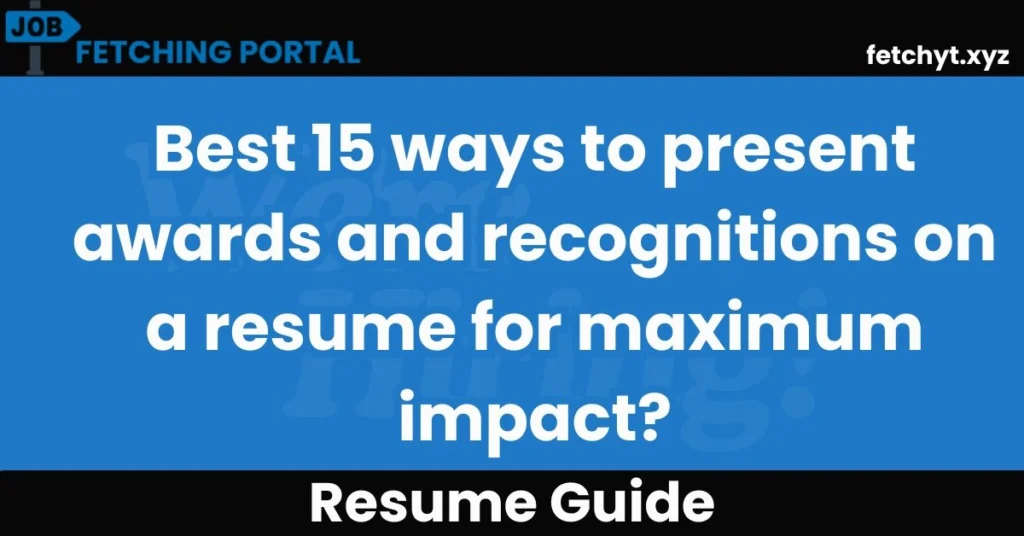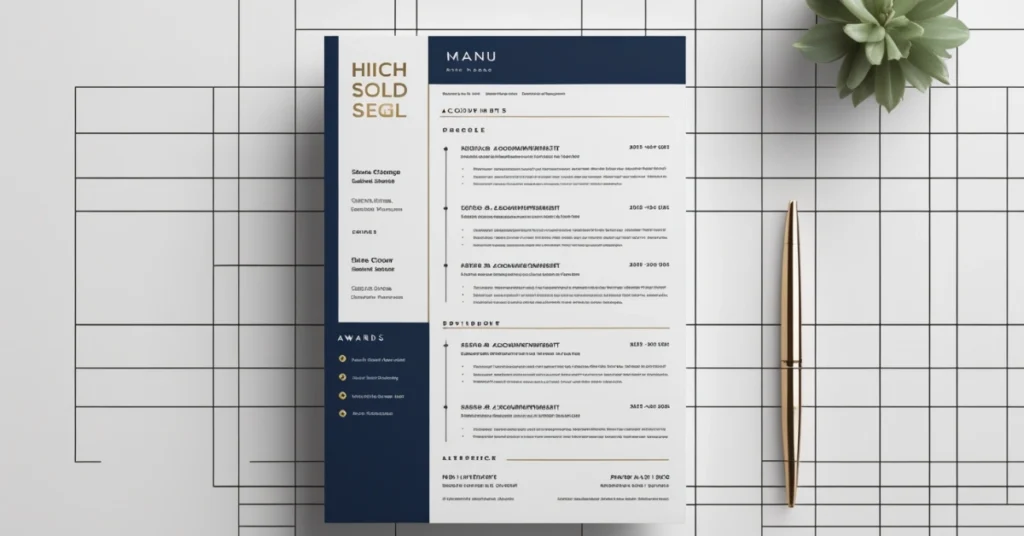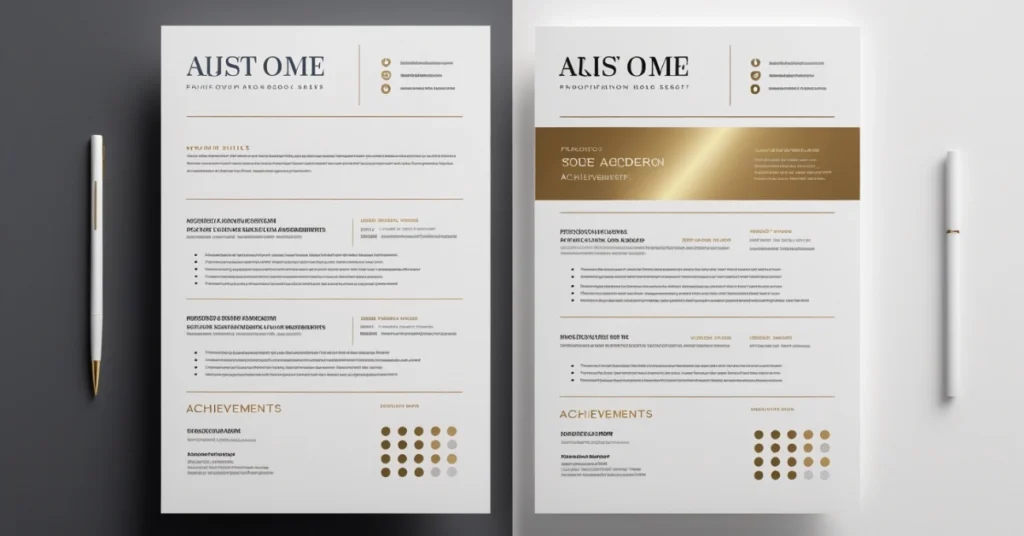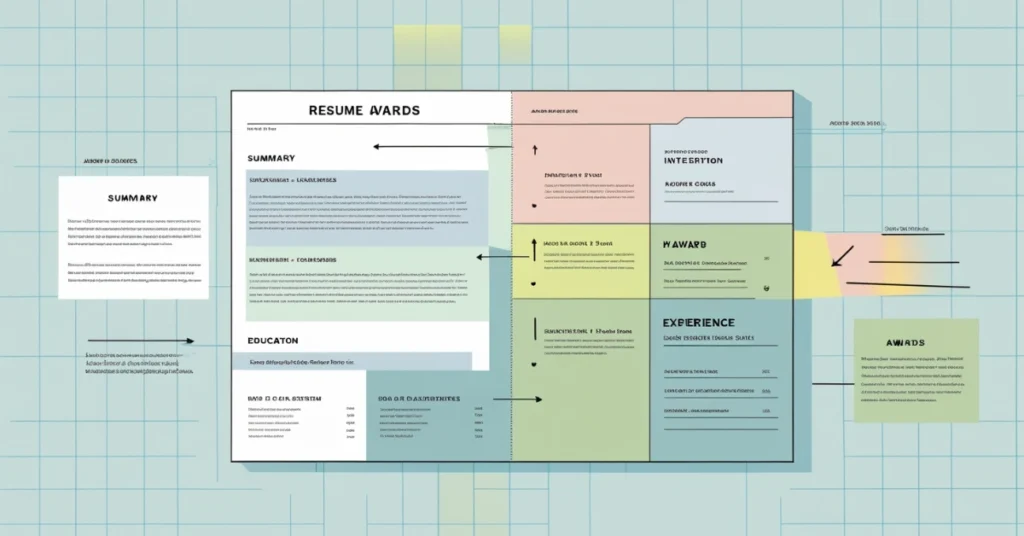Unlock 15 game changing ways to present awards and recognitions on a resume for maximum impact. Impress recruiters and land your dream job faster.
If you’re applying for jobs and want to stand out, there’s one powerful element that most people overlook on their resumes: awards and recognitions.

Want a resume that stands out and boosts your chances of getting hired? Try our easy Resume Builder tool on Fetchyt link below
These aren’t just nice extras they’re clear proof that you’ve done something exceptional. Whether it’s being named Employee of the Year, receiving a leadership award, or winning a scholarship, these achievements show employers that you’re more than just qualified. You’re outstanding.
In this guide, you’ll learn the 15 best and most effective ways to present awards and recognitions on a resume for maximum impact. These tips are based on what hiring managers actually look for and follow proven strategies that work.
Why Including Awards and Recognitions Matters
Awards are more than just decorations. They offer solid evidence that others have recognized your work, skills, or character. When added the right way, they:
- Show that you’re a high performer
- Build trust and credibility
- Prove that you’re results-driven
- Help your resume stand out instantly
Awards support your personal brand and show you’re not just another candidateyou’re a top contender.
Also Read Related Guide : Best 18 Ways to Use Action Verbs to Enhance a Resume Impact in Germany
Where and How to Include Awards on a Resume
| Resume Section | Type of Award | Tip for Best Impact |
|---|---|---|
| Resume Summary | Major or career-defining awards | Place high-impact awards right at the top |
| Work Experience | Job-specific awards and recognitions | Include with context and measurable results |
| Education | Academic awards and scholarships | Pair with degree and GPA (if relevant) |
| Awards Section | Multiple or significant awards | Create a separate section if you have 3 or more |
| Certifications/Skills | Awards linked to skills or credentials | Reinforce your expertise with related awards |
15 Best Ways to Present Awards and Recognitions on a Resume
1. Highlight Your Top Award in the Resume Summary
Your summary is the first thing recruiters see. Use it to showcase your most impressive award.
Example:
Award-winning project manager recognized as “Employee of the Year” in 2023 for leading a team that delivered results 3 months ahead of schedule.
This quickly tells the employer you’re not just experienced you’ve been recognized for your results.
2. Create a Separate Awards Section
If you have several awards, listing them in their own section makes them easy to find and gives them more impact.
Example:
Awards and Honors
- Marketing Excellence Award, 2023
- Employee of the Year, ABC Corp, 2022
- Best Creative Campaign, National Design Conference, 2021
This shows a consistent track record of success.
3. Include Awards Under the Job Where You Earned Them
List awards as part of your job description if they relate directly to that role.
Example:
- Increased client retention by 40% and was named “Top Customer Experience Leader” for 2022.
This keeps the context clear and adds value to the job entry.
4. Add Numbers to Show the Scale of the Award
Whenever possible, include how many people you competed against or what the criteria were.
Example:
- Chosen as “Best Regional Manager” from a group of over 50 managers across the country.
This helps hiring managers understand how competitive the award was.

Related Our Short Guide on Medium
5. Include Who Gave You the Award
Mention the organization or company that issued the award to boost credibility.
Example:
- Recognized by Google as a “Certified Ads Specialist of the Month” in June 2023.
This adds authority and makes the award more believable.
6. Link the Award to a Key Skill
If an award showcases a skill that’s also required for the job, highlight that connection.
Example:
- Winner of the “Team Leadership Award” for successfully managing a cross-functional team of 15 employees on a high-stakes project.
This shows that your skill has been tested and recognized.
7. Put the Most Relevant Awards First
Always list the awards that match the job you’re applying for at the top of the section.
If you’re applying for a leadership role, mention leadership awards before any unrelated ones.

8. Use Simple Formatting to Make It Easy to Read
You can use bold text for award names to make them easy to scan, but avoid fancy designs or colors.
Example:
Top Performer Award, ABC Company – 2022
Recognized for exceeding annual sales targets by 150%.
9. Use Action Verbs and Strong Words
Start your bullet points with words that show action and achievement.
Example:
Earned, awarded, recognized, received, achieved, honored, selected, led
These words make your resume sound more dynamic and confident.
10. Explain Less Known Awards Briefly
If the award is not widely known, give a short explanation.
Example:
- Recipient of the “Blue Flame Award,” given to the top 5 percent of employees based on innovation and impact.
This helps the reader understand the value of the award.
11. Include Academic Awards in the Education Section
If you’re a recent graduate or applying for a job where education matters, academic awards can help.
Example:
Bachelor of Science in Engineering, University of Texas, 2022
Honors: Dean’s List (4 semesters), Academic Achievement Scholarship
12. Add Volunteer or Community Awards
These show leadership and commitment outside of work and are especially helpful for entry-level or nonprofit roles.
Example:
- Volunteer of the Year, Habitat for Humanity, 2023
Led a team that built 12 homes in underserved communities.
13. Match Keywords from the Job Listing
Use keywords from the job post in the same sentence where you mention the award.
Example:
- Awarded “Customer Service Leader” for achieving top satisfaction scores while managing a high-volume support team.
This helps your resume pass Applicant Tracking Systems (ATS).
14. Focus on Quality, Not Quantity
You don’t need to list every award you’ve ever received. Stick to those that are meaningful, recent, or relevant to the job.
15. Add the Result Behind the Award
Explain what you did to earn the award. The story behind it can be just as powerful.
Example:
- Earned the “Innovation Award” for designing a cost-saving workflow that reduced overhead by 20 percent in just 6 months.

Common Mistakes to Avoid When Listing Awards on a Resume
Even strong resumes can lose impact if awards are presented poorly. Here are a few mistakes to avoid:
- Listing too many minor or outdated awards
- Using vague language like “Received many awards” without details
- Leaving out the reason or result behind the recognition
- Not organizing awards in order of relevance or importance
- Using inconsistent formatting that makes the section hard to read
Keep your awards section focused, clear, and results-driven to ensure it helps rather than hurts your resume.
What If You Don’t Have Any Awards Yet? Here’s What to Do
If you don’t have formal awards yet, you can still show recognition and stand out by:
- Highlighting strong performance reviews or manager praise
- Mentioning promotions or fast career growth
- Including personal achievements (like completing a tough course or project)
- Getting involved in professional groups where you can earn future recognitions
- Volunteering for leadership roles or extra responsibilities
Remember, not every achievement needs a trophy. Showing growth, initiative, and impact can be just as powerful.
Frequently Asked Questions
Where should I put awards on my resume?
You can place awards in the summary, work experience, education, or a separate awards section depending on how many you have and their relevance to the job. Always prioritize visibility and clarity.
How do I describe an award on my resume?
Mention the award name, who gave it, when, and why you received it. Add numbers or results if possible to show its value and context clearly.
Should I include old or school related awards on a professional resume?
Yes, but only if they are recent, highly relevant, or impressive. For example, national or leadership awards can still make an impact even if they were earned in school.
What if I don’t have any official awards to include?
You can still list recognitions like positive performance reviews, promotions, or leadership roles. These show your value and dedication even without formal titles.
Do awards really help in getting a job interview?
Absolutely. Awards show you’re a high achiever and can set you apart from others with similar skills. Employers value proof of performance and recognition.
Final Thoughts
Awards and recognitions are proof that your work stands out. They offer credibility and show hiring managers that others have already seen your potential.
By including them in the right way whether in your summary, work experience, or a dedicated section Best 15 ways to present awards and recognitions on a resume for maximum impact?you turn your resume into more than a list of jobs. You turn it into a story of success.
Don’t be shy about your achievements. Let your awards speak for you and give recruiters a reason to say, “We need to talk to this person.”